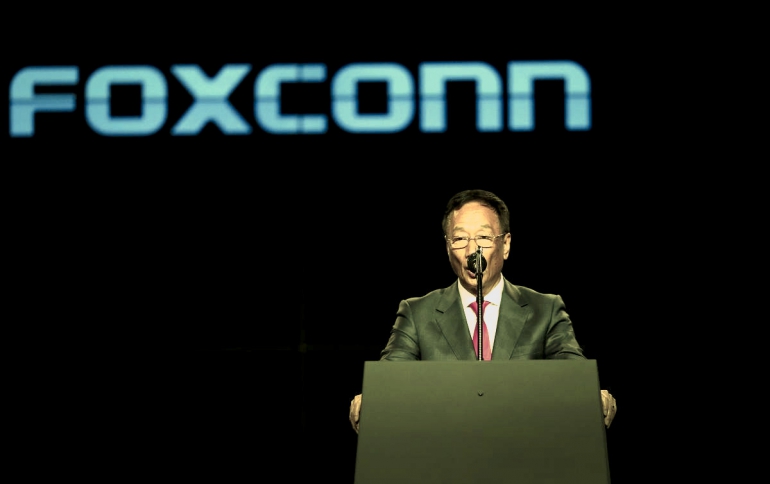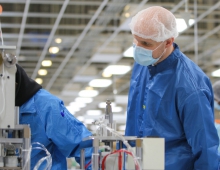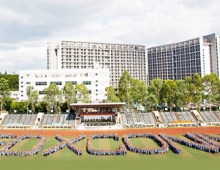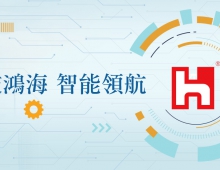
Foxconn Announces Leadership Changes as Chairman Seeks Taiwan Presidency
Foxconn on Tuesday announced a plan to overhaul its leadership structure in a move to allow more senior executives involved in the running of its daily operations.
At its investors conference in Taipei, Foxconn revealed a new “operations committee” that will give senior executives from the group’s subsidiaries greater control.
Hon Hai, the largest listed arm of Foxconn Technology Group, is establishing a body of nine executives who will represent its top decision-making unit after the board, the company said in exchange filings. They include Foxconn Chief Financial Officer Huang Chiu-lian and Lin Zheng-hui, who heads the company’s iPhone-making facility in central China’s Zhengzhou.
Hon Hai's chairman Terry Gou is trying to win a party nomination to compete in the 2020 Taiwanese presidential elections.
Foxconn manufactures most of its devices in China, many of which then find their way to American consumers. In its exchange filings, the company said it will localize some of its manufacturing across production bases covering 16 countries from Japan and Mexico to the U.S. and India.
Foxconn also said that it has enough capacity to make all Apple iPhones bound for the U.S. outside of China if necessary. The Taiwanese contract manufacturer now makes most of the smartphones in the Chinese mainland.
China is the origin of most of its iPhones and iPads as well as its largest international market. But President Donald Trump has threatened Beijing with new tariffs on about $300 billion worth of Chinese goods, an act that would escalate tensions dramatically while levying a punitive tax on Apple’s most profitable product.
Hon Hai will fully support Apple if it needs to adjust its production as the U.S.-Chinese trade spat gets grimmer and more unpredictable, board nominee and semiconductor division chief Young Liu told an investor briefing in Taipei on Tuesday.
“Twenty-five percent of our production capacity is outside of China and we can help Apple respond to its needs in the U.S. market,” said Liu, adding that investments are now being made in India for Apple. “We have enough capacity to meet Apple’s demand.”
Apple has not given Hon Hai instructions to move production out of China, but it is capable of moving lines elsewhere according to customers’ needs, Liu added. The company will respond swiftly and rely on localized manufacturing in response to the trade war, just as it foresaw the need to build a base in the U.S. state of Wisconsin two years ago, he said.
It’s unclear if India will ever become a major production base for Apple’s marquee device.
The company also revealed plans to widen the range of products at its $10 billion flagship U.S. factory in Wisconsin, elevating the strategic importance of the plant amid the escalating trade tensions.
Foxconn launched its Wisconsin factory last year to great fanfare as the biggest foreign investment in the U.S. "[The diversified product portfolio] in Wisconsin is all for addressing the need in the U.S. market," Liu said.
The Wisconsin project was crucial Foxconn's ability to deal with the new order of "one world, two systems," Liu said.
The products to be manufactured in the Wisconsin factory would be extended beyond the planned display panels to servers, networking products and automotive central controls. The factory is expected to be operational from the end of next year.
While Foxconn had originally intended the plant to manufacture new generation liquid crystal dioxide displays, the company has scaled back its ambitions several times, citing the overcrowded display market.
Liu said the first phase of investment would involve some $1.4 billion to $1.5 billion out of a total $10 billion investment commitment the company made in 2017.
Liu is widely expected to take over from founder and chairman Terry Gou later this month, as he makes a bid for Taiwan's presidency.





















